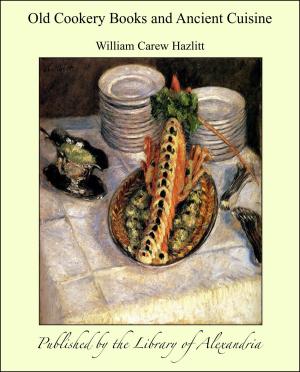| Author: | Octave Mirbeau | ISBN: | 9781465606945 |
| Publisher: | Library of Alexandria | Publication: | March 8, 2015 |
| Imprint: | Language: | English |
| Author: | Octave Mirbeau |
| ISBN: | 9781465606945 |
| Publisher: | Library of Alexandria |
| Publication: | March 8, 2015 |
| Imprint: | |
| Language: | English |
One evening some friends were gathered at the home of one of our most celebrated writers. Having dined sumptuously, they were discussing murder—apropos of what, I no longer remember probably apropos of nothing. Only men were present: moralists, poets, philosophers and doctors—thus everyone could speak freely, according to his whim, his hobby or his idiosyncrasies, without fear of suddenly seeing that expression of horror and fear which the least startling idea traces upon the horrified face of a notary. I—say notary, much as I might have said lawyer or porter, not disdainfully, of course, but in order to define the average French mind. With a calmness of spirit as perfect as though he were expressing an opinion upon the merits of the cigar he was smoking, a member of the Academy of Moral and Political Sciences said: “Really—I honestly believe that murder is the greatest human preoccupation, and that all our acts stem from it... “ We awaited the pronouncement of an involved theory, but he remained silent. “Absolutely!” said a Darwinian scientist, “and, my friend, you are voicing one of those eternal truths such as the legendary Monsieur de La Palisse discovered every day: since murder is the very bedrock of our social institutions, and consequently the most imperious necessity of civilized life. If it no longer existed, there would be no governments of any kind, by virtue of the admirable fact that crime in general and murder in particular are not only their excuse, but their only reason for being. We should then live in complete anarchy, which is inconceivable. So, instead of seeking to eliminate murder, it is imperative that it be cultivated with intelligence and perseverance. I know no better culture medium than law.” Someone protested. “Here, here!” asked the savant, “aren't we alone, and speaking frankly?” “Please!” said the host, “let us profit thoroughly by the only occasion when we are free to express our personal ideas, for both I, in my books, and you in your turn, may present only lies to the public.” The scientist settled himself once more among the cushions of his armchair, stretched his legs, which were numb from being crossed too long and, his head thrown back, his arms hanging and his stomach soothed by good digestion, puffed smoke−rings at the ceiling: “Besides,” he continued, “murder is largely self−propagating. Actually, it is not the result of this or that passion, nor is it a pathological form of degeneracy. It is a vital instinct which is in us all—which is in all organized beings and dominates them, just as the genetic instinct. And most of the time it is especially true that these two instincts fuse so well, and are so totally interchangeable, that in some way or other they form a single and identical instinct, so that we no longer may tell which of the two urges us to give life, and which to take it—which is murder, and which love. I have been the confidant of an honorable assassin who killed women, not to rob them, but to ravish them. His trick was to manage things so that his sexual climax coincided exactly with the death−spasm of the woman: 'At those moments,' he told me, 'I imagined I was a God, creating a world!”
One evening some friends were gathered at the home of one of our most celebrated writers. Having dined sumptuously, they were discussing murder—apropos of what, I no longer remember probably apropos of nothing. Only men were present: moralists, poets, philosophers and doctors—thus everyone could speak freely, according to his whim, his hobby or his idiosyncrasies, without fear of suddenly seeing that expression of horror and fear which the least startling idea traces upon the horrified face of a notary. I—say notary, much as I might have said lawyer or porter, not disdainfully, of course, but in order to define the average French mind. With a calmness of spirit as perfect as though he were expressing an opinion upon the merits of the cigar he was smoking, a member of the Academy of Moral and Political Sciences said: “Really—I honestly believe that murder is the greatest human preoccupation, and that all our acts stem from it... “ We awaited the pronouncement of an involved theory, but he remained silent. “Absolutely!” said a Darwinian scientist, “and, my friend, you are voicing one of those eternal truths such as the legendary Monsieur de La Palisse discovered every day: since murder is the very bedrock of our social institutions, and consequently the most imperious necessity of civilized life. If it no longer existed, there would be no governments of any kind, by virtue of the admirable fact that crime in general and murder in particular are not only their excuse, but their only reason for being. We should then live in complete anarchy, which is inconceivable. So, instead of seeking to eliminate murder, it is imperative that it be cultivated with intelligence and perseverance. I know no better culture medium than law.” Someone protested. “Here, here!” asked the savant, “aren't we alone, and speaking frankly?” “Please!” said the host, “let us profit thoroughly by the only occasion when we are free to express our personal ideas, for both I, in my books, and you in your turn, may present only lies to the public.” The scientist settled himself once more among the cushions of his armchair, stretched his legs, which were numb from being crossed too long and, his head thrown back, his arms hanging and his stomach soothed by good digestion, puffed smoke−rings at the ceiling: “Besides,” he continued, “murder is largely self−propagating. Actually, it is not the result of this or that passion, nor is it a pathological form of degeneracy. It is a vital instinct which is in us all—which is in all organized beings and dominates them, just as the genetic instinct. And most of the time it is especially true that these two instincts fuse so well, and are so totally interchangeable, that in some way or other they form a single and identical instinct, so that we no longer may tell which of the two urges us to give life, and which to take it—which is murder, and which love. I have been the confidant of an honorable assassin who killed women, not to rob them, but to ravish them. His trick was to manage things so that his sexual climax coincided exactly with the death−spasm of the woman: 'At those moments,' he told me, 'I imagined I was a God, creating a world!”















